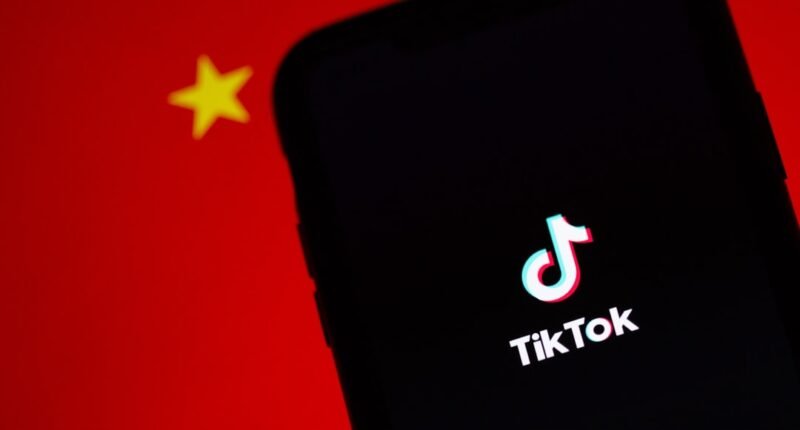In today’s digital age, influencer marketing has become an essential strategy for startups looking to gain visibility and credibility in the market. Influencer marketing involves collaborating with individuals who have a significant following and influence over a specific target audience. These influencers can help promote your brand, products, or services to their loyal followers, resulting in increased brand awareness and credibility.
One of the main benefits of influencer marketing for startups is the ability to reach a wider audience. By partnering with influencers who have a large following, you can expose your brand to a larger pool of potential customers. This increased exposure can lead to higher brand awareness and ultimately drive more traffic to your website or physical store.
Furthermore, influencer marketing allows startups to tap into the trust and credibility that influencers have built with their audience. When an influencer promotes your brand or product, their followers are more likely to trust their recommendation and consider trying out your offerings. This can be especially beneficial for startups that are still building their own reputation and credibility in the market.
Key Takeaways
- Influencer marketing is important for startups to increase brand awareness and reach new audiences.
- Micro influencers have smaller followings but higher engagement rates, while local influencers have a strong connection to their community.
- Working with micro influencers can lead to more authentic and targeted content, while local influencers can help establish a strong local presence.
- Influencer email finder tools can help identify potential influencers for your startup.
- The cost of working with micro influencers may be more budget-friendly, but it’s important to consider the specific goals of your campaign.
Defining Micro Influencers and Local Influencers: What Sets Them Apart?
Micro influencers and local influencers are two types of influencers that startups can consider working with. While they may have some similarities, there are key differences between the two.
Micro influencers are individuals who have a smaller but highly engaged following on social media platforms. They typically have between 1,000 to 100,000 followers and are known for their niche expertise or interests. Micro influencers often have a more personal connection with their followers, which leads to higher engagement rates on their posts.
On the other hand, local influencers are individuals who have a significant following within a specific geographic location. They are often seen as experts or authorities within their local community and have built a loyal following based on their knowledge and recommendations related to local businesses and events.
The main difference between micro influencers and local influencers lies in their audience size and geographic location. Micro influencers have a smaller but highly engaged following, while local influencers have a larger following within a specific location.
The Benefits of Working with Micro Influencers for Your Startup
Working with micro influencers can bring several benefits to startups. Firstly, micro influencers tend to have higher engagement rates compared to macro influencers or celebrities. This is because their followers feel a stronger connection to them and are more likely to interact with their content. By partnering with micro influencers, startups can leverage this high engagement to generate more buzz and interest around their brand or products.
Secondly, working with micro influencers is often more cost-effective for startups compared to collaborating with larger influencers. Micro influencers are usually more willing to work on a smaller budget or in exchange for free products or services. This makes them an attractive option for startups that may have limited marketing budgets but still want to reach a targeted audience.
Lastly, micro influencers often have a niche expertise or interest that aligns with your startup’s target audience. This means that their followers are more likely to be interested in your products or services, resulting in higher conversion rates. By partnering with micro influencers who have a genuine interest in your industry, you can tap into their loyal following and convert them into customers.
The Benefits of Working with Local Influencers for Your Startup
Working with local influencers can also bring significant benefits to startups, especially those targeting a specific geographic location. Local influencers have an in-depth knowledge of the local market and can provide valuable insights and recommendations to their followers.
One of the main advantages of working with local influencers is their ability to reach a specific audience within a particular location. If your startup operates in a specific city or region, partnering with local influencers can help you target potential customers who are more likely to be interested in your offerings. Local influencers often have a strong influence over their community and can help generate word-of-mouth referrals and recommendations.
Additionally, local influencers can provide valuable feedback and insights about your products or services. Since they are familiar with the local market, they can offer suggestions on how to tailor your offerings to better meet the needs and preferences of the local audience. This feedback can be invaluable for startups looking to refine their products or services and improve their overall customer experience.
How to Find Micro Influencers for Your Startup: Using Influencer Email Finder
Finding the right micro influencers for your startup can be a daunting task, but there are tools available to help simplify the process. One such tool is an influencer email finder, which allows you to search for influencers based on specific criteria such as niche, follower count, and engagement rate.
To find micro influencers using an influencer email finder, start by identifying your target audience and the niche or industry that your startup operates in. This will help you narrow down your search and find influencers who have a genuine interest in your offerings.
Next, use the influencer email finder tool to search for influencers within your chosen niche. You can filter the results based on follower count, engagement rate, and other relevant criteria. Take the time to review each influencer’s profile and content to ensure that their values and style align with your brand.
Once you have identified potential micro influencers, reach out to them via email or direct message to introduce yourself and explain why you are interested in collaborating with them. Be sure to personalize your message and highlight how their expertise or interests align with your startup’s offerings. Remember to be respectful of their time and offer something of value in return for their collaboration, such as free products or services or a monetary compensation.
How to Find Local Influencers for Your Startup: Using Influencer Email Finder

Finding local influencers for your startup follows a similar process as finding micro influencers. Start by identifying the specific location or community that you want to target. This could be a city, region, or even a neighborhood.
Once you have identified your target location, use an influencer email finder tool to search for influencers within that area. You can filter the results based on location and other relevant criteria such as follower count and engagement rate.
When evaluating local influencers, pay attention to their connection with the local community and their knowledge of the area. Look for influencers who actively engage with their followers and provide valuable recommendations and insights related to local businesses and events.
To reach out to local influencers, use the same approach as with micro influencers. Craft a personalized email or direct message that explains why you are interested in collaborating with them and how their expertise or influence within the local community aligns with your startup’s offerings. Offer something of value in return for their collaboration, such as free products or services or a monetary compensation.
The Cost of Working with Micro Influencers vs. Local Influencers: Which is More Budget-Friendly?
When it comes to the cost of working with micro influencers versus local influencers, there are several factors to consider. Generally, micro influencers tend to be more budget-friendly compared to larger influencers or celebrities. This is because they often have lower rates and are more willing to work on a smaller budget or in exchange for free products or services.
Micro influencers are often motivated by their passion for a specific niche or industry rather than monetary compensation. They may be more interested in building relationships and partnerships with brands that align with their values and interests. This makes them an attractive option for startups that may have limited marketing budgets but still want to leverage the power of influencer marketing.
On the other hand, local influencers may have higher rates compared to micro influencers due to their expertise and influence within a specific location. They have built a reputation within their local community and may command higher fees for their collaborations. However, working with local influencers can still be cost-effective for startups that are targeting a specific geographic location and want to reach a highly targeted audience.
Ultimately, the cost of working with influencers will depend on various factors such as their follower count, engagement rate, expertise, and geographic location. It’s important to evaluate the potential return on investment (ROI) and consider the long-term benefits of working with influencers when determining your budget.
How to Pitch Your Startup to Micro Influencers and Local Influencers: Crafting the Perfect Email
Crafting an effective email pitch is crucial when reaching out to micro influencers and local influencers. Here are some tips to help you create a compelling pitch that will grab their attention:
1. Personalize your message: Take the time to research each influencer and personalize your email or direct message. Mention something specific about their content or values that resonates with your startup. This shows that you have done your homework and are genuinely interested in collaborating with them.
2. Highlight the benefits: Clearly explain why you are interested in working with the influencer and how their expertise or influence aligns with your startup’s offerings. Highlight the benefits that they will receive from collaborating with you, such as exposure to your target audience or access to your products or services.
3. Offer something of value: Incentivize the influencer by offering something of value in return for their collaboration. This could be free products or services, a monetary compensation, or exclusive access to your brand or events. Make it clear what they will receive in exchange for their promotion of your startup.
4. Be concise and clear: Keep your email pitch concise and to the point. Influencers receive numerous collaboration requests, so it’s important to grab their attention quickly. Clearly state what you are looking for and how they can get involved.
5. Follow up: If you don’t receive a response from an influencer after sending your initial pitch, don’t be discouraged. Follow up politely after a few days to remind them of your collaboration request. Sometimes, influencers may simply overlook or forget to respond to emails, so a gentle reminder can be helpful.
Remember, influencers receive numerous collaboration requests on a daily basis, so it’s important to stand out from the crowd. Craft a personalized and compelling pitch that clearly communicates the value of collaborating with your startup.
Measuring the Success of Your Influencer Marketing Campaign: Key Metrics to Track
Measuring the success of your influencer marketing campaign is essential to determine the return on investment (ROI) and make informed decisions for future campaigns. Here are some key metrics to track:
1. Reach: Measure the number of people who have been exposed to your brand or content through the influencer’s promotion. This can be tracked through social media analytics or website analytics tools.
2. Engagement: Track the level of engagement generated by the influencer’s promotion, such as likes, comments, shares, and clicks. This indicates how well your content resonates with the audience and whether it is driving meaningful interactions.
3. Conversions: Measure the number of conversions or sales generated as a result of the influencer’s promotion. This can be tracked through unique discount codes or affiliate links provided by the influencer.
4. Brand sentiment: Monitor the sentiment surrounding your brand or product after the influencer’s promotion. Look for positive mentions, reviews, or testimonials from customers who were influenced by the collaboration.
5. Follower growth: Track the growth in your own social media following or email subscriber list during and after the influencer’s promotion. This indicates whether the collaboration has helped increase your own audience and brand awareness.
There are various tools available to help track these metrics, such as social media analytics platforms, website analytics tools, and influencer marketing platforms. It’s important to set specific goals and benchmarks before launching your campaign so that you can accurately measure its success.
Choosing the Right Influencers for Your Startup’s Success
Influencer marketing can be a powerful strategy for startups looking to gain visibility and credibility in the market. By partnering with micro influencers or local influencers, startups can tap into their loyal following and reach a highly targeted audience.
Micro influencers offer higher engagement rates and lower costs, making them an attractive option for startups with limited budgets. Local influencers, on the other hand, provide valuable insights and recommendations within a specific geographic location.
To find the right influencers for your startup, use influencer email finder tools to identify potential candidates. Evaluate each influencer based on their niche expertise, audience size, engagement rate, and geographic location. Craft a personalized email pitch that highlights the benefits of collaborating with your startup and offer something of value in return.
Measure the success of your influencer marketing campaign by tracking key metrics such as reach, engagement, conversions, brand sentiment, and follower growth. Use these insights to refine your future campaigns and make informed decisions for your startup’s success.
In conclusion, influencer marketing can be a game-changer for startups looking to make their mark in the market. By choosing the right influencers and crafting compelling campaigns, startups can increase brand awareness, credibility, and ultimately drive more sales. Start planning your own influencer marketing campaign today and watch your startup thrive in the digital age.
If you’re a startup looking to leverage the power of influencers on platforms like TikTok, it’s crucial to understand the differences between micro influencers and local influencers. A recent article on influencers.email titled “TikTok Micro Influencers vs. Local Influencers: What Your Startup NEEDS To Know” dives deep into this topic, providing valuable insights and guidance for your influencer marketing strategy. Check out the article here to gain a better understanding of how these two types of influencers can impact your startup’s success.
FAQs
What is TikTok?
TikTok is a social media platform that allows users to create and share short-form videos.
What are micro influencers?
Micro influencers are social media users with a smaller following, typically between 1,000 and 100,000 followers, who have a highly engaged audience and can influence their followers’ purchasing decisions.
What are local influencers?
Local influencers are social media users who have a following within a specific geographic area, such as a city or region. They often have a strong connection to their local community and can influence their followers’ purchasing decisions.
What is the difference between TikTok micro influencers and local influencers?
TikTok micro influencers have a smaller following on the platform, while local influencers may have a larger following within a specific geographic area. Additionally, TikTok micro influencers may have a more niche audience, while local influencers may have a broader audience.
Why should startups consider working with TikTok micro influencers and local influencers?
Startups can benefit from working with TikTok micro influencers and local influencers because they can help increase brand awareness, reach new audiences, and drive sales. Additionally, working with micro influencers and local influencers can be more cost-effective than working with larger influencers.
How can startups find TikTok micro influencers and local influencers to work with?
Startups can find TikTok micro influencers and local influencers by searching for relevant hashtags on TikTok and Instagram, using influencer marketing platforms, and reaching out to influencers directly.
What should startups consider when working with TikTok micro influencers and local influencers?
Startups should consider the influencer’s audience demographics, engagement rates, and content quality when working with TikTok micro influencers and local influencers. Additionally, it’s important to establish clear expectations and goals for the partnership and to ensure that the influencer’s values align with the brand’s values.






